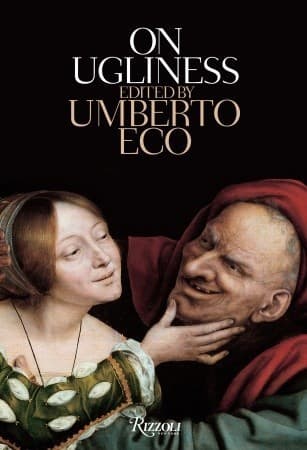
Book Review Summary: On Ugliness
Introduction
Umberto Eco's "On Ugliness" is a captivating exploration of the monstrous and repellant in visual culture and the arts. Eco, a renowned cultural critic and professor of semiotics, delves into the voyeuristic impulse behind our attraction to the gruesome and horrible. He examines the magnetic appeal of the sordid and scandalous, and explores the concept of ugliness in art and literature. With a vast array of examples from painting and sculpture, and quotations from celebrated writers and philosophers, Eco provides a comprehensive discussion on the concepts of evil, depravity, and darkness in art.
About Umberto Eco
Umberto Eco was an Italian writer, essayist, and professor of semiotics. Known for his playful use of language, allusions, and references, Eco's fiction is celebrated for its intellectual depth and clever narrative inventions. His essays on modern culture are filled with humor, irony, and insights into semiotics, interpretation, and aesthetics. Eco's extensive knowledge of medieval and Renaissance art and literature adds depth to his exploration of ugliness in "On Ugliness."
Analysis of Views
- Curated Texts: Readers appreciate the extensive curated texts in "On Ugliness," which offer a broad view of how ugliness has been represented and thought about in Western culture. The range of extracts showcases Eco's erudition and provides a comprehensive understanding of the topic.
- Historical Compendium: The book presents a historical compendium of ugliness throughout history, covering various societies, time periods, and artistic movements. Eco's exploration of ugliness in art and literature offers a panoramic understanding of mankind's fascination with darkness.
- Erudition and Connections: Readers praise Eco's ability to connect all the dots and maintain a flowing narrative throughout the book. Despite its broad nature, Eco manages to keep the major concepts and themes cohesive, providing a seamless journey through aesthetic ideals throughout time.
- Visual Appeal: The book is visually stunning, with lavish illustrations that complement the text. Readers appreciate the beautifully produced books, which are a joy to look at and collect.
- Limited Insights: Some readers feel that Eco's commentary is sparse and superficial, offering limited insights into the topics he discusses. They wish for more in-depth analysis and a deeper exploration of the subject matter.
- Misogyny and Kitsch: A few readers express disappointment with certain chapters that focus on misogyny and kitsch. They find the content off-putting and uncomfortable to read.
Reasons for Recommendation
- Curated Texts: The extensive curated texts provide readers with an immersive reading experience that broadens their understanding of ugliness in art and literature.
- Historical Compendium: The historical compendium offers a comprehensive exploration of ugliness throughout history, making it a valuable resource for those interested in the topic.
- Erudition and Connections: Eco's ability to connect ideas and maintain a cohesive narrative makes "On Ugliness" an engaging read that keeps readers engaged from start to finish.
Reasons for Not Recommendation
- Limited Insights: Some readers feel that Eco's commentary does not offer enough depth or analysis, leaving them wanting more insights into the topics covered.
- Misogyny and Kitsch: A few readers find certain chapters on misogyny and kitsch off-putting or uncomfortable to read, which may deter them from recommending the book to others.
Conclusion
"On Ugliness" by Umberto Eco is an engaging exploration of the monstrous and repellant in visual culture and the arts. Eco's extensive knowledge of art history, literature, and semiotics provides readers with a comprehensive understanding of ugliness as a concept. While some readers feel that the book lacks depth in certain areas, the curated texts, historical compendium, erudition, and connections make it a valuable resource for those interested in the topic. Overall, "On Ugliness" offers a fascinating journey into the darker aspects of human attraction and the complexities of beauty and ugliness in artistic expression.